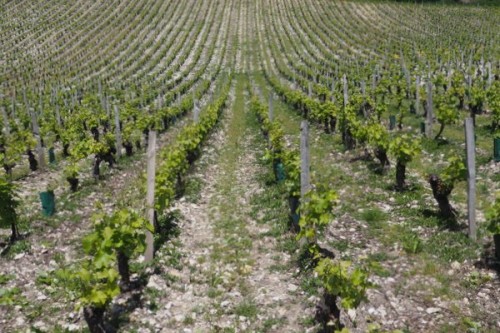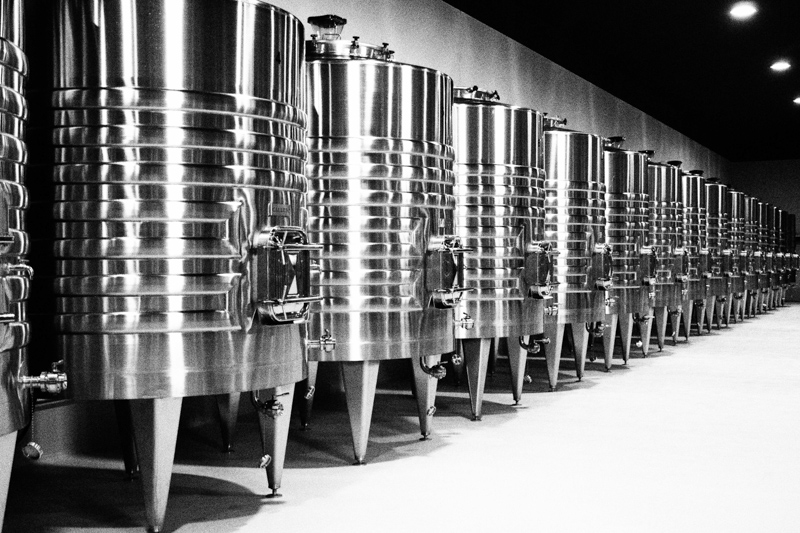
Lots of chat at the moment, both in the wine world and also the wider world, about working for free. We live in the intern culture. We get offered gigs that pay by giving us experience; the writing jobs that pay by means of exposure.
This is a tricky area. There’s nothing new about the concept of work experience, and its older cousin, unpaid internships. If you want to get a toe hold in a very attractive career, this can be the only route in.
But it can also be quite exploitative. Sometimes employers and even organizers abuse the system by using the offer of experience or exposure as a way to get free work out of people. Sometimes the equation works out for both parties; often it doesn’t.
If you harbour dreams of becoming a wine writer, and you are in salaried employment in the wine trade, then writing for The Buyer for free might not seem such a terrible idea. You can’t blame the Buyer for making use of writers who see the benefit of being published but who don’t need to make a living from writing work. If they paid normal industry rates, then their fledgling publication would never be able to fly.
And there are a number of wine websites that have a half-way model. They pay a rate that isn’t enough for someone to make a living from writing to survive on, but they actually do pay something. If writers insisted on the sort of living wage rates that writers should be asking for, then their model wouldn’t work.
I get asked to do stuff for free all the time. The wine world is rife with unpaid gigs.
This is how it goes. I get an email enquiry, asking me to talk at a conference, or come and judge wine. I look at the opportunity, and see how attractive it is. I then reply, asking whether there is a budget to pay me, because this is how I make my living (I shouldn’t have to ask this question, but often there isn’t).
Sometimes the answer is no: no budget so no fee. It doesn’t mean I say no: the gig could involve long haul flights to somewhere I want to go to. Or it could involve giving a talk to an important audience at a high profile conference. So I might work for free in some situations, but only if no one else is getting a fee and the organizing body isn’t making lots of money and paying no one anything.
Generally, though, I tend not to do things for free. But I don’t begrudge those who do: many people speaking at conferences are already salaried, and speaking at conferences is something they are expected to do as part of their job. And wine judging in New Zealand and Australia is a high-profile gig for winemakers, and people are queuing up to do it. So no one gets paid.
Then, of course, we have press trips. If I go on a press trip I give up a week of my time for free. But that is justified because I learn, and quite simply there is no other simple way to get to see lots of producers unless I get some help from generic bodies or producer organizations, although I do self-fund some trips because it’s the only way to see some regions.
The problem with the wine world is that it is a very attractive field of endeavour, and lots of people want to work in wine. The resulting supply/demand imbalance means that it’s hard to make a living doing what I do – communicating about wine. You are competing with people who are prepared to work for free, and if you value your work too highly and raise your rates beyond a certain point, then you will lose work, no matter who you are. Also, some people I compete with don’t need to make a good living. Gone are the days where in the UK a wine correspondent would get an annual salary of GBP£40 000 for one column a week, with plenty of opportunity and time for supplementary earnings.
I worry for writers who implement a rigid rule of never working for free. Many of the things you need to do to raise your profile either pay poorly, or don’t pay at all. If you just chase gigs that pay well, you won’t have enough work, and you’ll never build your profile enough to become famous enough that you get the really good gigs. And you’ll miss a lot of interesting stuff.
You are reading this article for free on a blog that is updated daily, and has very good traffic. It makes some money from advertising/sponsorship, but nowhere near enough to justify the time and effort put in. Without this blog, though, I wouldn’t have many of the paying gigs that I do.
Is it wrong to ask people to work for free? There is no blanket answer. Sometimes it really does work for both parties, but if you have budget then it seems morally right to pay people who do work you benefit from. How should you respond if you are asked to work for free? The key, here, as in other works of life, is learning when to say yes and when to say no.
5 Comments on Working for free

I’m lucky because the bulk of my income comes from non-wine related activities. I am asked frequently to speak about wine and health since I’m a gastroenterologist on the faculty at Harvard Medical School. A criterion I use is exactly what you mentioned— if the organization is making money, I expect to be paid. If they are not, and it’s a worthy cause (in my estimation), then I’m flattered to be invited and will donate my time and expertise.
I’ve chosen to write about wine and travel in the last two decades, and earlier about sailing, three areas many people want to write about (and enjoy the perks). They pay poorly.
I used to write about high technology and business in the boom times before the Internet destroyed many magazines and newspapers, and more recently, the business and technology of wine. They paid fairly (once well). However, they aren’t as much fun so not many people choose them.
Now I mostly write about the area I live in, Napa Valley, and naturally that’s fun but not very remunerative.
There are many opportunities to write commercial copy, but I’ve chosen (and am able) to pass on those. It helps that I can.
A wine writer and critic has to be entirely impartial with impeccable integrity to be respected and virtuous. That is what makes wine writing so challenging from a payment standpoint. Winery people are a very sociable group and it is easy to be drawn into friendships established through the years that can taint wine and winery reviews, as well as regional and appellation coverage. In 17 years of writing The PinotFile newsletter, I have never been paid to review wines or attend a conference or judge a tasting other than infrequent reimbursement for travel and lodging. I have been paid for published articles that contained subject matter of my own choosing. Fortunately, I have not been dependent on income from my wine writing, but pursue it as a self-fulling second career.
Yes, yes, yes. I have learned to establish very clear boundaries about what kind of work-and for whom-that I am willing to do for free and what my expectations are for companies and organizations with the funds.
Your quote “The problem with the wine world is that it is a very attractive field of endeavour, and lots of people want to work in wine. The resulting supply/demand imbalance means that it’s hard to make a living…” is so true. And it applies to all aspects of the wine industry. From production staff to sales people, there is a lineup of people willing to do the job (for even less money) because it seems like such a romantic world to work in. But at some point, we all have to pay our bills… So many who stay in these jobs are actually subsidized by Mom and Dad, or some other “non-reality” situation.